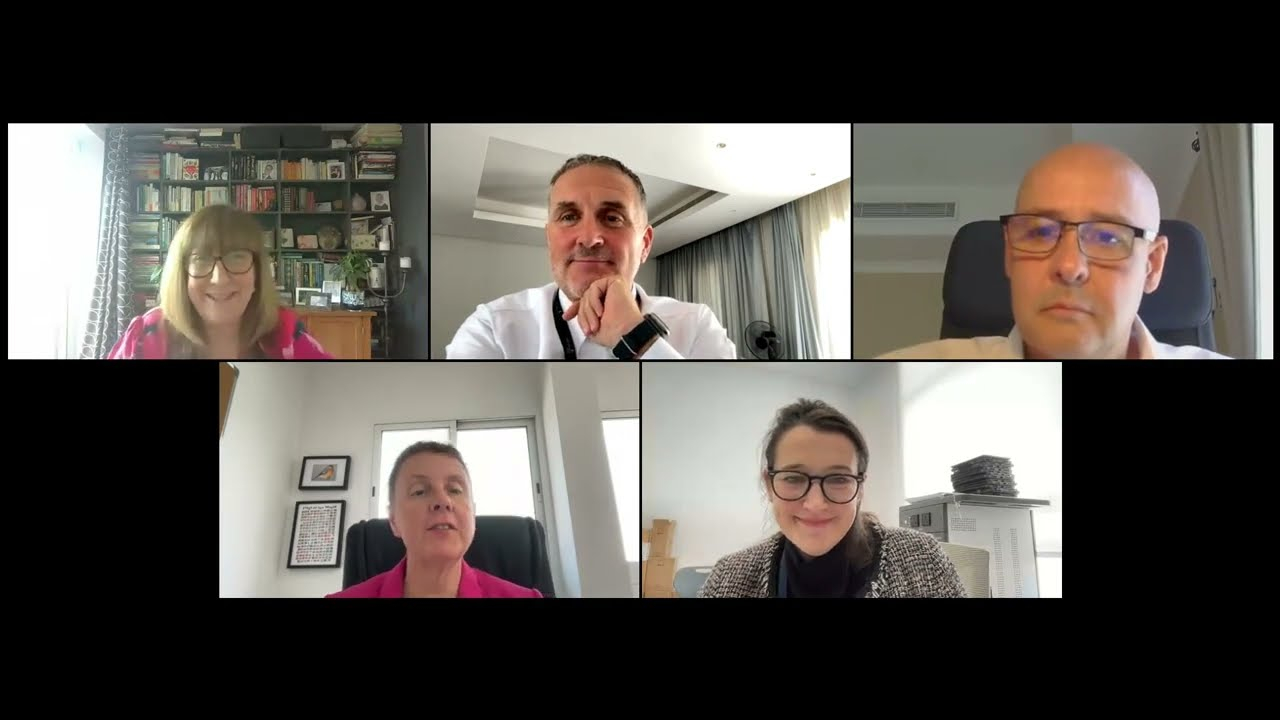Future Skilling Students for the 4IR era
Half of us will need to reskill in the next five years, as the "double disruption" of the economic impacts of the pandemic and increasing automation transforming jobs takes hold, per a report by the World Economic Forum. This will also necessitate organisations to adopt an approach that 'seeks to be open, fluid, and adaptable with a model that focuses on a powerful aspiration: creating sustainable and inclusive growth', according to a McKinsey Study.

The consequential requirement for upskilling, reskilling and new-skilling the workforce has never been higher. And as the physical economy becomes a reality, employers will increasingly seek a new set of soft and hard skills from applicants. These can be segmented into 4 broad streams:
Cognition Capacity: The ability to absorb knowledge and its effective application is the simplest way to define cognition capacity. As more and more work gets taken over by machines and the youth of today journey through multiple careers in their professional life, the ‘ability to re-learn’ will be held in high value by employers. They will seek applicants who can exhibit:
• Curiosity & Lifelong learning aptitude - The WEF states that ‘The knowledge, skills and behaviour required are evolving so fast it is impossible for learning and development departments to steer the upskilling and reskilling of a workforce without the employees doing their part.' And curiosity is the start of the learning process.
• Creativity – the ability to apply technology and solutions to solve complex issues will be in high demand. A high creativity quotient gives the ability to think about a task or a problem in a new or different way, or the ability to use imagination to generate new ideas.
• Critical Thinking – ‘Critical thinking is self-guided, self-disciplined thinking which attempts to reason at the highest level of quality in a fair-minded way’, according to the Foundation for Critical Thinking. In an era dominated by machines the ability to layer automation efficiency with necessary human governance and decision-making will be crucial.
Technology Competence: Machines are set to become our close friends and therefore everyone will be expected to be technology fluent. While not everyone will become a data scientist, an expected level of technology fluency will be a prerequisite and some of the adjacent attributes that shall be in demand will be:
• AI comfort – knowing how to harness the power of AI - where data models are now moving beyond predictive to prescriptive structures - will be a critical work and life skill
• Cyber Security – if physical security was the paramount concern in the past few centuries, it will be replaced by cyber-security and everyone will be expected to demonstrate a level of proficiency to protect the backbone of AI: Data.
• Perceptual Acuity – the ability to crystal ball into the future and look around the bend, to harness the power of tech developments for the betterment of business and society, will be a distinguishing feature of leaders tomorrow.
Social Emotional Capabilities
According to the publication Intelligent-Change - ‘Workplace adaptability, emotional self-regulation, understanding other people’s complex emotions, building fruitful relationships, teamwork, along with a variety of skills and traits directly associated with productivity will play a crucial role when it comes to success at work’, especially as machines take over the mundane tasks. Social-emotional capabilities will show up as:
• Collaboration skills - in the multi-geo dispersed workforce world of tomorrow, collaboration frameworks, operationalised under a defined taxonomic structure or implemented more informally as part of a company culture are going to be the norm going forward. It will require employees to demonstrate a high level of social awareness and relationship skills to successfully navigate the new ways of working and cooperating.
• Organisation skills – characterised by Self Awareness & Self-Management, the ability to manage pressures and stresses of a VUCA world will help employees stand out and provide necessary steer in complex situations.
• Situational Intelligence – reflected as responsible decision making, exhibited through the ability to make caring and constructive choices.
Planet Custodianship
We all know the planet is in crisis mode. And corporate entities will have an important role to play in all aspects of sustainability and ensuring a liveable future. Sustainability may be one of the most important ways for leaders to connect the dots between running a successful, profitable business and taking care of people and planet Earth. This will require a focus on three key elements:
• Earth – Climate change is a true existential threat and every human will need to both be educated on climate resilience and showcase an ability to integrate climate and environment protection into daily work life.
• Equity – ensuring social justice and driving equity on all fronts – digital, socio-economic, physical ability, gender, ethnicity, will be an expected employability trait.
• Culture – the danger in a machine dominated world is the vanilla flavoured homogenisation that could set in. Therefore, intercultural understanding, appreciation, and preservation, is going to be a much-desired attribute for students in tomorrow’s work world.
The work world is on the cusp of profound change. Education institutes need to be keyed in to the transformations afoot, and align pedagogy and curricula, to produce a vibrant next generation that can thrive in the new knowledge economy era.
Author:
Mayank Dhingra
Senior Education Business Leader, HP Inc
Stay up to date
Subscribe to the free GESS Education newsletter and stay updated with the latest insights, trends, and event news every week. Your email address will remain confidential

